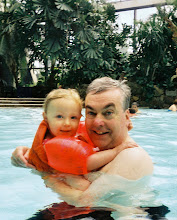
Into this conversation, Peterson, introduces Elijah. He quotes the great Scottish preacher Alexander Whyte:
“The prophet Elijah towers up like a mountain in
The basis of this chapter lies in the fact that Elijah was a prophet in the
“While the prophetic accusation of harlotry has literal reference to the sacred prostitution of the Baal cult, it is also a metaphor that extends its meaning into the entire theology of worship, worship that seeks fulfillment through self expression, worship that accepts the needs, desires and passions of the worshipper as its baseline………Baalism reduces worship to the spiritual stature of the worshipper. Its cannons are that it should be interesting, relevant and exciting - that ‘I get something out of it.’
Authentic worship means being present to the living God who penetrates the whole of human life.
He suggests that the phrase ‘let’s have a worship experience’ is the Baalistic perversion of ‘let us worship God’.
He believes that worship is not something we experience, it is something we do, regardless of how we feel about it. The experience develops out of the worship, not the other way round. Worship is the response to God’s word in the context of the community of God’s people.
Peterson suggests that so often we are faced with a choice - deal with God or with an image of God. When we are faced with that choice, so often we go for the image - an image of God customized to our requirements. An image is impersonal and we don’t have to have any relationship with what is impersonal.
He reckons that the essence of the way of Elijah is that it counters the world’s way, the culture’s way.
By the end of this chapter there quite a few thoughts running round in my head. Have we slipped into a way of thinking about worship as centred on ourselves and not on God? Is our aim be to make worship ‘interesting, relevant and exciting’ in order that we get ‘something out of it’. Do we so often come to worship with a misplaced focus on ourselves and our own needs and feelings? How much does the culture of the day actually shape what we do and what we think?
I will end this comment with the final words of Peterson in this chapter –
‘Elijah and his vast company of prophets, by now centuries deep and worldwide, train us in discerning the difference between the ways of the world and the ways of Jesus, keeping us present to the presence of God.’





No comments:
Post a Comment